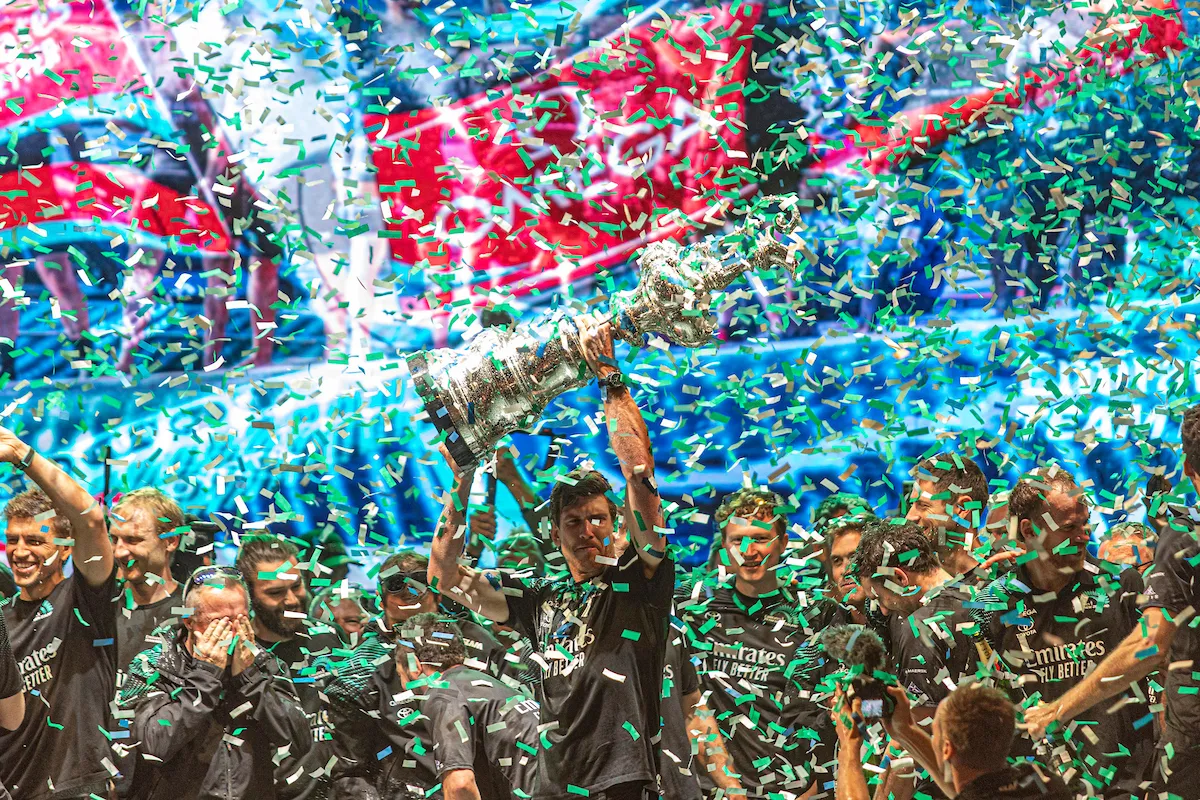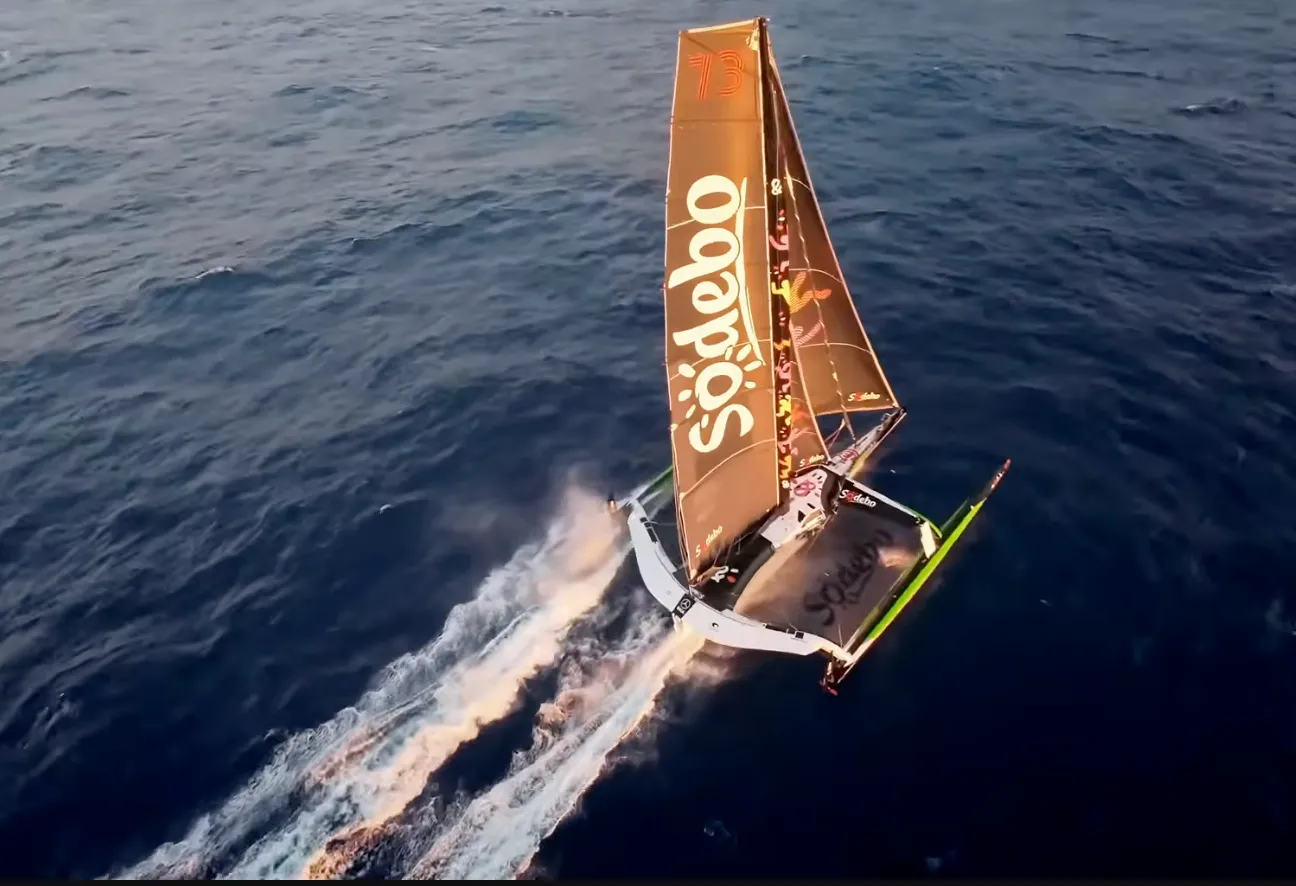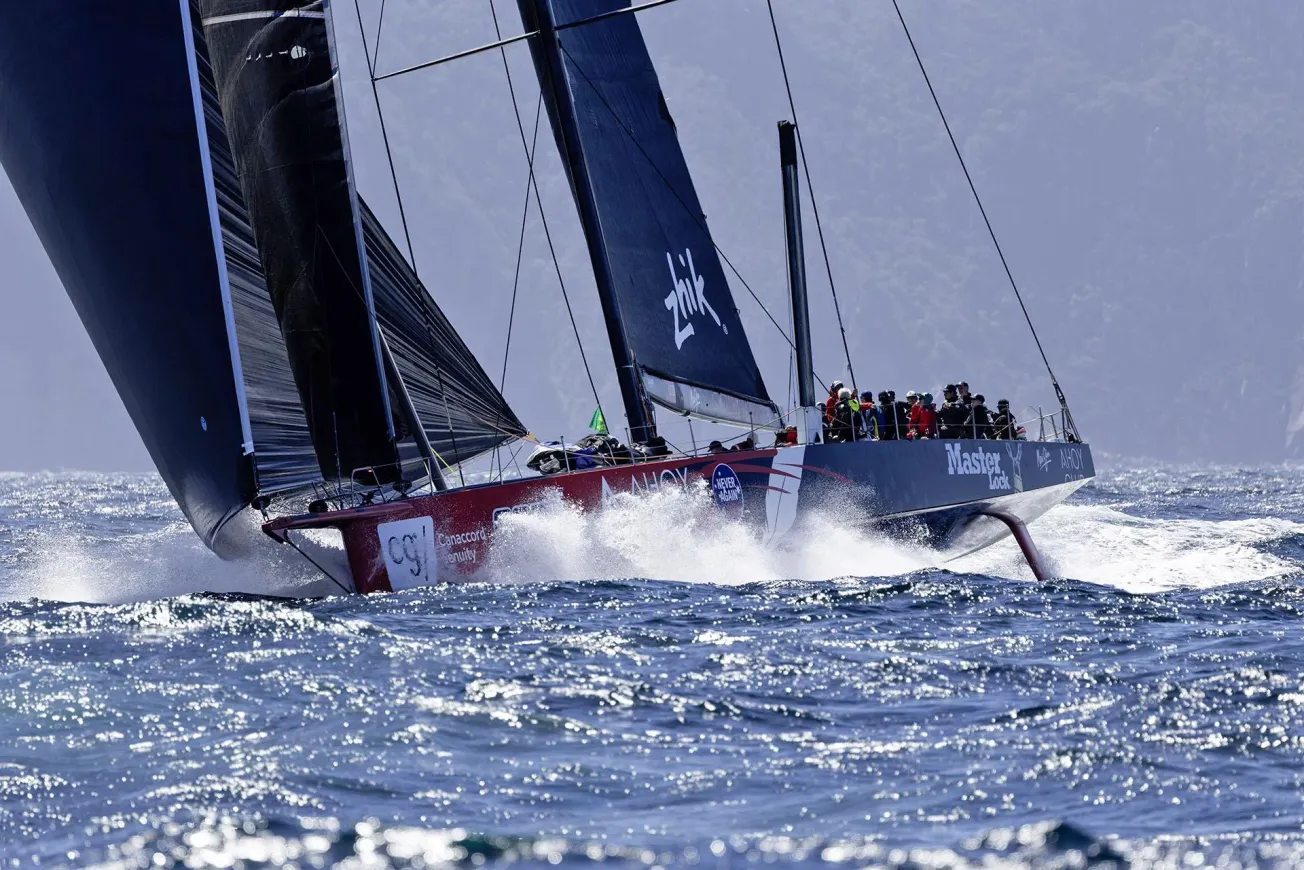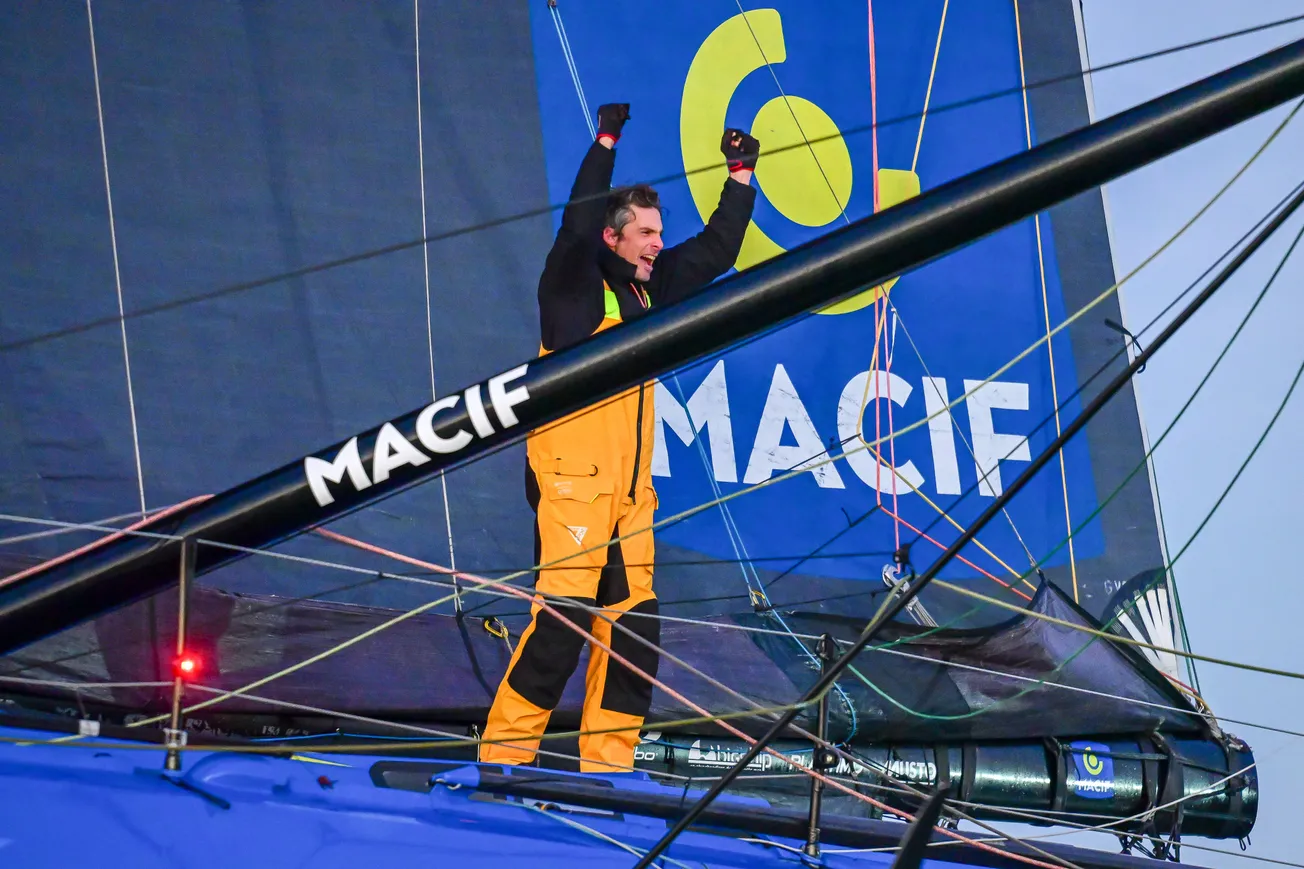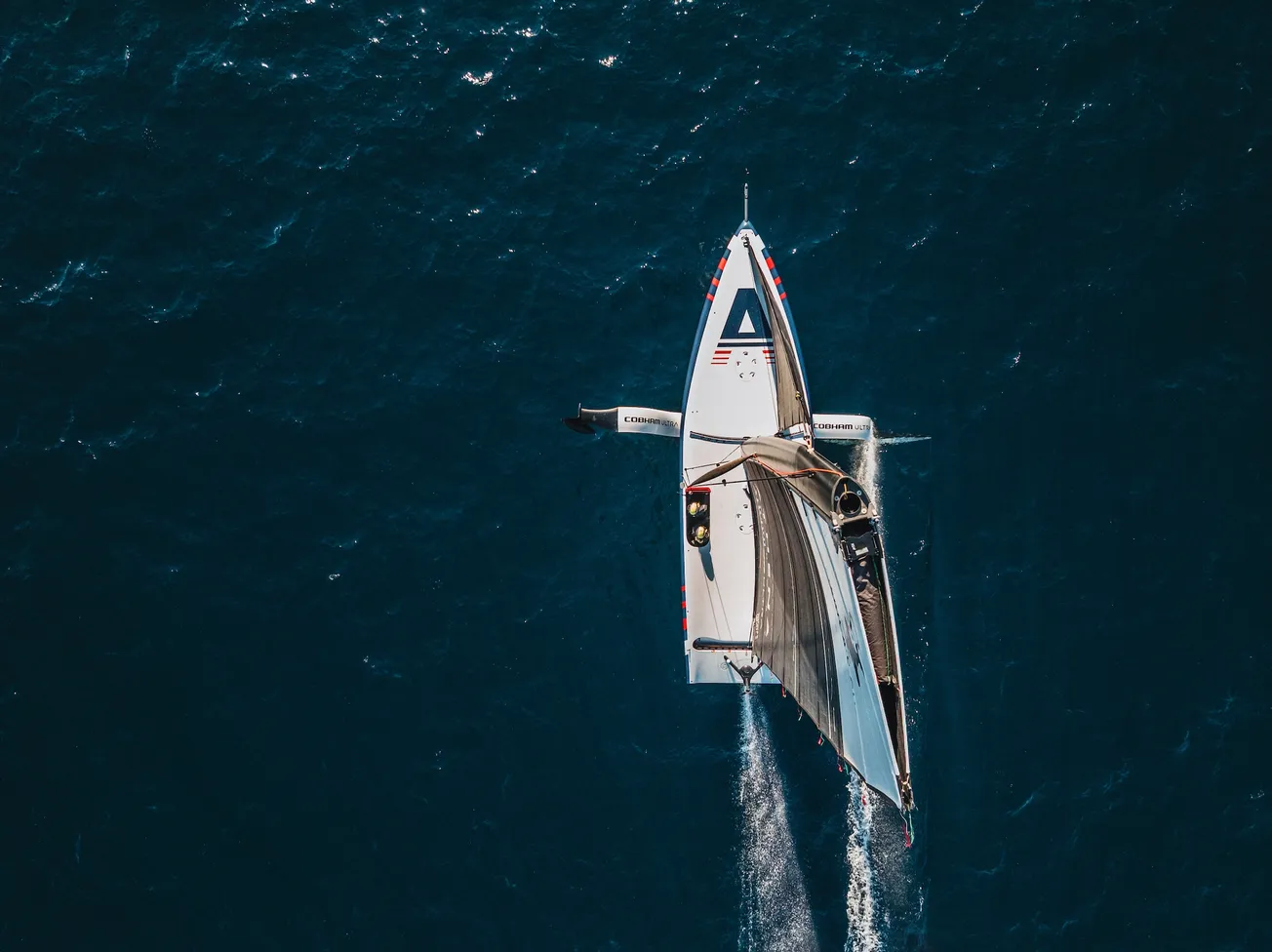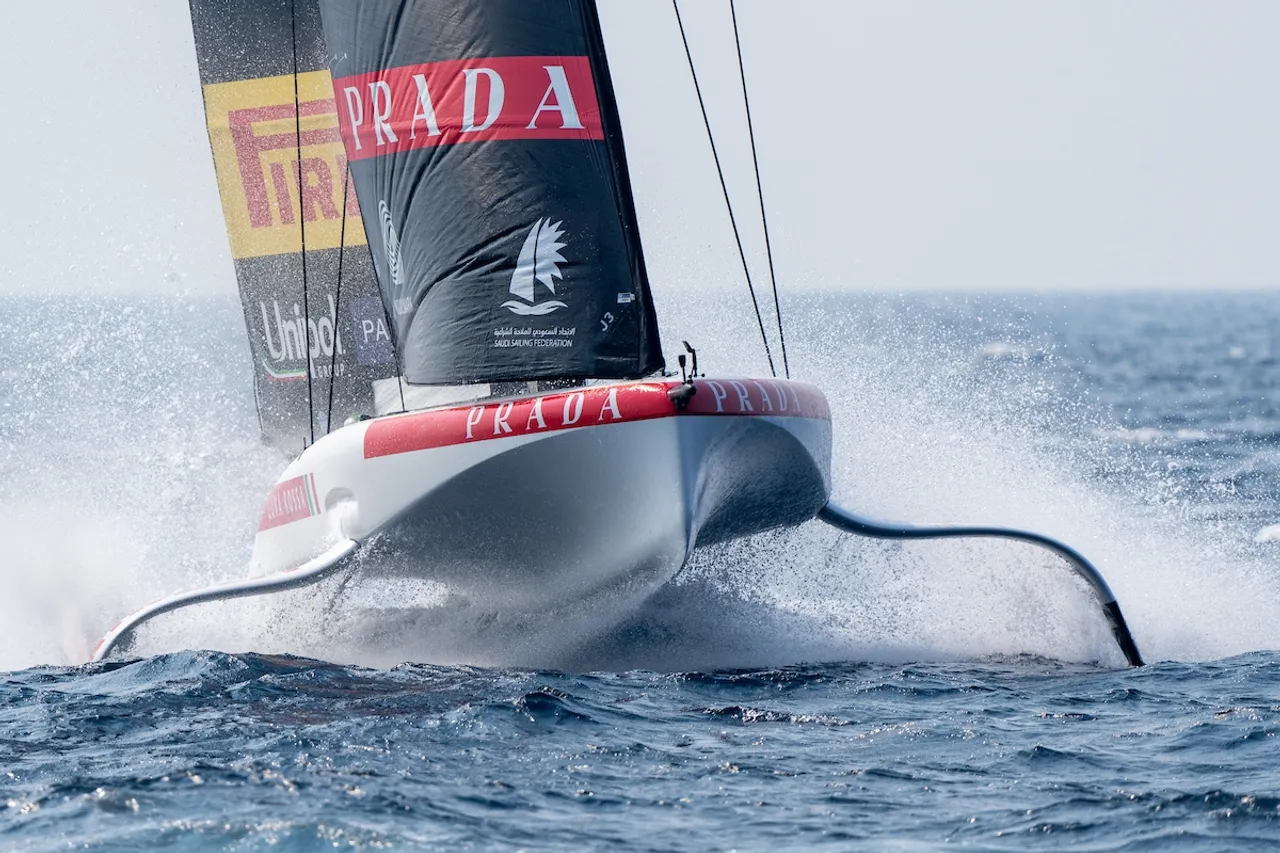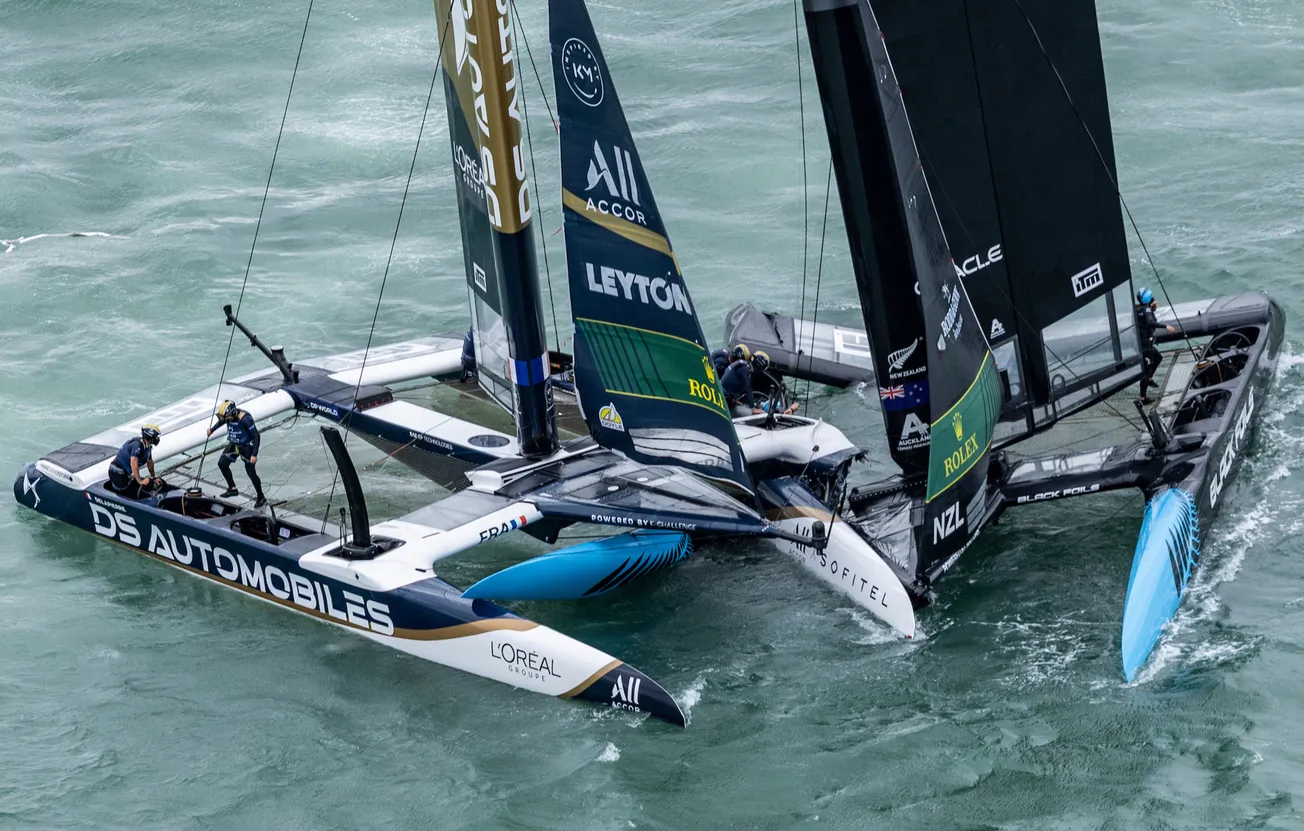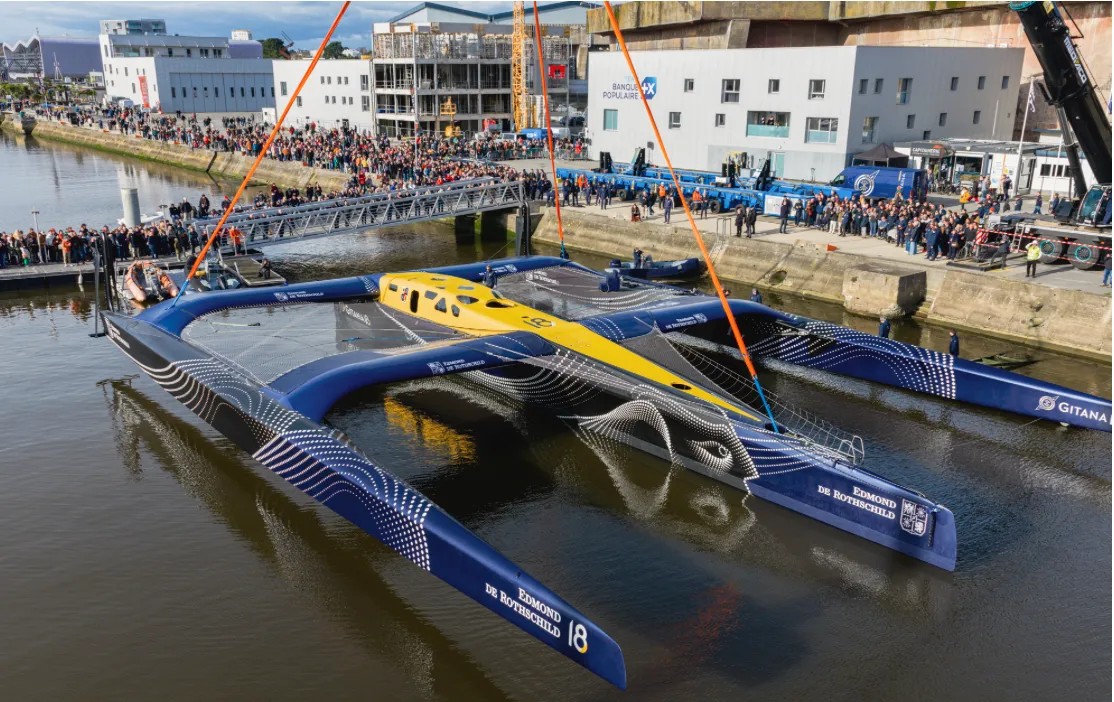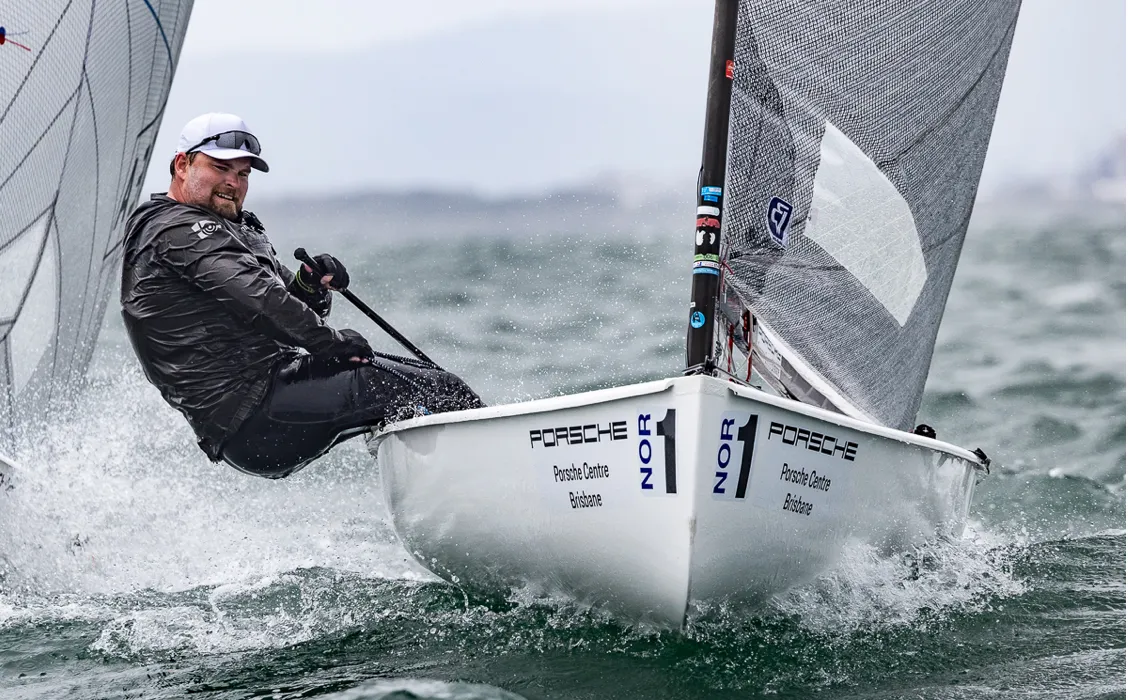

Naples planning to do AC38 in style
We may still not yet have a confirmed list of challengers for the Louis Vuitton 38th America’s Cup but on the venue front we’ve got a pretty good idea what fans can expect from Naples, Italy in the summer of 2027 – and it looks fantastic.
Over the weekend at the 65th Genoa International Boat Show the Defender Emirates Team New Zealand presented an exciting vision for the planned setup at AC38 – both along the city’s main waterfront and around the corner at Bagnoli where an ambitious redevelopment programme will see the long-derelict industrial site transformed to house the AC38 team bases and an ‘AC Tech Fan Village’.
The site – which includes a glitzy new superyacht marina – will also include a dedicated Women & Youth base for the AC40 yachts to launch from, public viewing areas, state-of-the-art media and broadcast centres, a volunteer facility, and the headquarters of the America’s Cup Event (ACE) organisation.
It is all laid out in the video rendering below – so take a look for yourself – but for me it is a major step up from Barcelona during AC37 where the team bases were dotted all across the city’s harbour area making it hard to capture the tense atmosphere as the teams docked out on the morning of a race day.
Having a single location for the team bases adjacent to a Fan Village as is planned in Naples is hands down the preferred option and I would be surprised if Naples hotels are not already seeing a surge in enquiries from America’s Cup fans around the world.
Artemis Racing joins SailGP for Season 6
The first of the two new SailGP teams that will compete in the global league’s sixth season next year was revealed over the weekend as the Swedish syndicate Artemis Racing, which will be skippered by Australian helmsman Nathan Outteridge, with British Olympic gold and silver medallist Iain Percy as CEO.
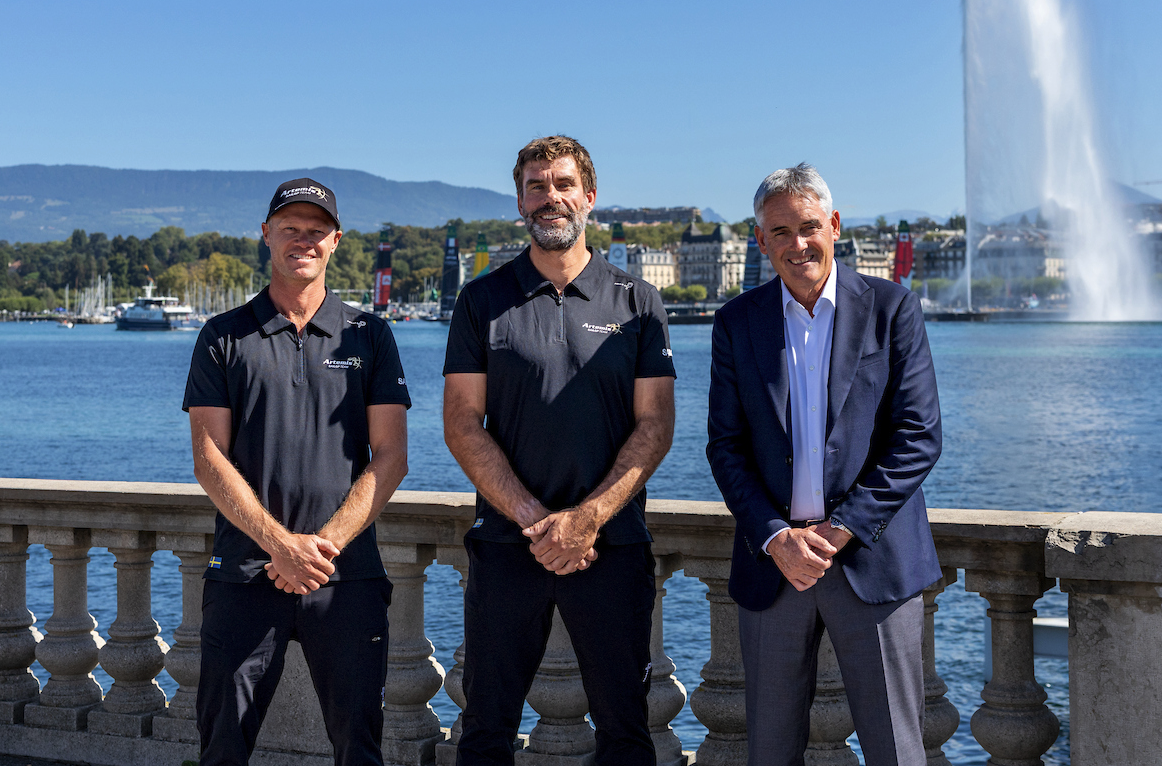
Owned by Swedish billionaire businessman Torbjörn Törnqvist – a keen and accomplished sailor who previously led TP52 campaigns on the Audi MedCup circuit (the precursor to the 52 Super Series) and is currently active on the RC44 circuit – Artemis Racing challenged for the 34th America’s Cup in San Francisco and at AC35 in Bermuda.
Outteridge – also an Olympic gold and silver medallist – is no stranger to SailGP, having been heavily involved since the international circuit's inception as skipper of the now defunct Team Japan. Having sat out the 36th AC, for the 38th America’s Cup he was recruited as helmsman for Emirates Team New Zealand opposite Peter Burling. For AC38, following Burling’s departure to Italian rival Luna Rossa, Outteridge was promoted to skipper of the Kiwi team.
There is no word yet on the identity of the second new team for Season 6, but rumours are abounding that it could be a second American team led by US sailor Harry Melges – the grandson of Melges Boatworks founder and America’s Cup winner Buddy Melges.**
If that is the case it seems likely that the team could be backed by the US America’s Cup syndicate American Magic – primarily owned by American businessmen Hap Fauth and Doug DeVos – which is yet to confirm it will compete at AC38.**
The two new teams will take the SailGP fleet size to 14 boats with the league already having announced that the 2026 season will see the teams split into two fleets – although there are no details as yet to the exact format.**
**CORRECTION:
It seems I missed an announcement from Russell Coutts at the St. Tropez press conference that there will not now be a 14th team for Season 6. Apparently the repairs needed to the Brazil and USA boats delayed the build of the new boat and the fourteenth team will now be put off until 2027.
Time to rethink the Olympic Medal Race
It seems that Olympic sailing is once again under the cosh from the International Olympic Committee. The IOC’s key problem with sailing – although I suspect the overall list of issues is a long one – centres around the challenge of making sense of the final day of an Olympic regatta for a global TV audience.
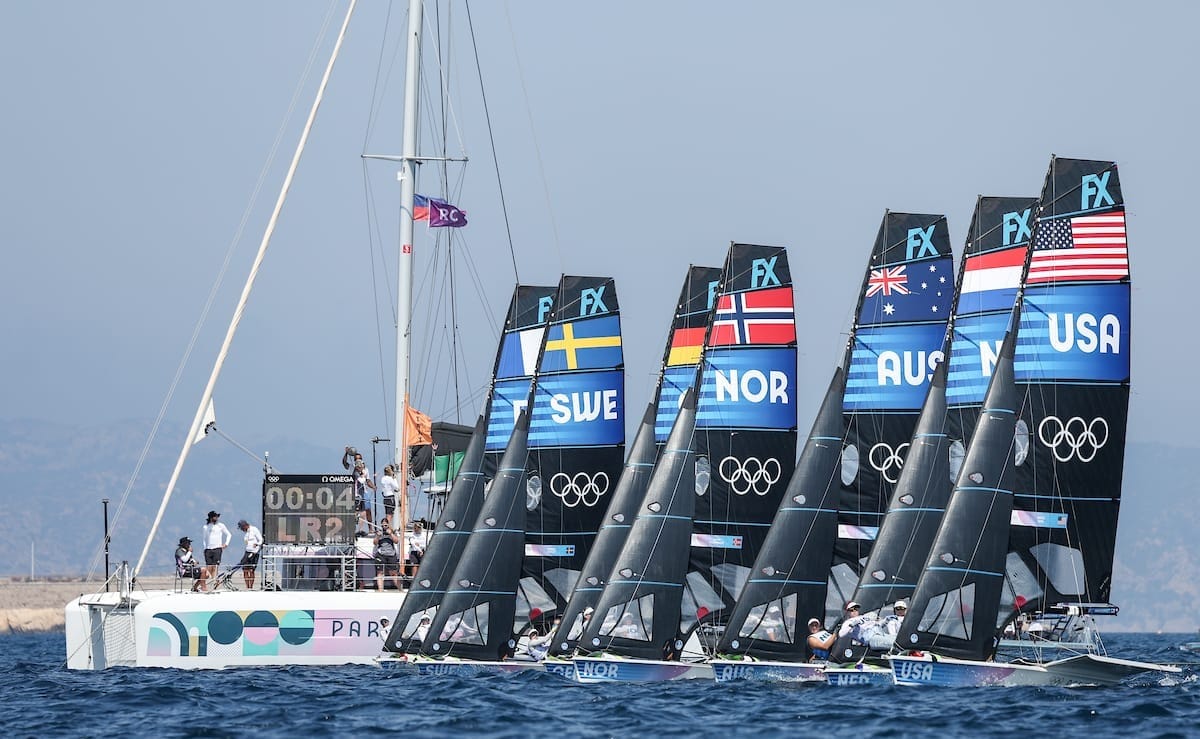
Apparently the introduction at Beijing 2008 of a double-points final medal race between the top 10 teams is no longer cutting it and the IOC are putting the pressure on World Sailing to come up with something better – i.e. easier for channel hopping mainstream sports fans to comprehend.
The Medal Race format – which was highly contentious at the time – replaced the original format of a long series of races from which competitors could discard their one (or maybe even two) worst scores and the competitor with the best overall score was declared the winner.
That got iced by the IOC because it included the possibility of someone putting in such a stellar performance that they had won the gold medal before the series had been completed.
I never really understood why that was such an issue for a casual Olympic viewer to comprehend. If I was watching a sport I was unfamiliar with and was told that this athlete had won gold with a day to spare, I think I would be massively impressed rather than confused in any way?
But for the IOC, it was a case of Where’s the jeopardy? Where's the tension? Where's the excitement?
Charged with coming up with something better, World Sailing’s current favoured option for implementation at the Los Angeles 2028 Olympic Games – the decision deadline is March 2026 by the way – is as follows:
- Three days of regular racing
- After which the top eight boats advance to the final day – but with no points carried over – to compete in three races
- After Race 1 the bottom two boats are eliminated with the remaining six going on to the second race
- After Race 2 the bottom two boats are eliminated with the remaining four boats going on to the third race
- In Race 3 first across the line wins gold, second across wins silver, third across wins bronze
I don't know about you, but I can see a few issues straight away.
Firstly, is this really less complicated than a one-and-done medal race? I hardly think so. Secondly, this system seems inherently unfair as it does not factor in the sailors’ performance in the three days of fleet racing. Imagine winning every race in the qualifiers and then being OCS in Race 1 on the final day and going home with nothing? Is that what audiences would prefer to see? It’s no surprise to me to see that this suggested format has been nicknamed the ‘30 Minutes of Tears’ option – where all that is on offer over the first two races on the final day are eliminations and tears.
Surely we can do better? Well Ben Remmoker – class manager for the Olympic 49er, 49er FX, and the Nacra 17 classes – certainly thinks so and has published three alternative options:
A ‘SailGP-style’ format where the top eight boats go into a three race final day with points awarded according to their overall rankings. After the first two races, the top four boats with the best cumulative scores go into the third and final race to decide the overall rankings.
A ‘first to win two races’ format where the top eight teams qualify for the final day with the top two teams awarded a point each and the others having zero. After the first race if one of the top two wins then they are the event winner. If this is not the case then the bottom two boats are eliminated and the other six go on to the second race.
Again, if any of the teams carrying one point win the race then they are declared the winner. Otherwise the bottom two teams are eliminated and the remaining four (each with one point apiece) go on to Race 3, where whoever wins the race is the overall winner.
A ‘Win the Day’ format where the top eight boats advance to the final day carrying a score based on their performance relative to each other across each of the first three days of racing. These eight boats take part in a three-race series, after which the boat with the best cumulative score is declared the winner. If someone is unbeatable after two races then the series can end early.
For what it is worth, my preferred option is the last one – primarily because it seems to me to be the fairest to the sailors. But what do you think? Got an idea for the perfect format?
If you do then Ben would love to hear from you. As he puts it:
“Now is the time for open discussion and bold innovation. Please draft and submit your suggestions to Ben@porttackracing.com. We will then create a survey where you will be able to vote on one or two formats.
“To be clear, we are not the ones deciding the final format, but we can play a significant role by contributing ideas, discussing them openly, and persuading others to go in a certain direction.”
By way of guidance, Ben offers these three primary goals that any proposed format should aim to balance:
Clarity and Simplicity
For example, first across the line wins - this is the most understandable way to conclude a regatta. It’s especially important for Olympic storytelling and for engaging general audiences.
It also ensures that everyone watching - whether on the water without commentary, graphics, or scoring information, or online with full live coverage — can clearly understand who is winning.
Merit-based Outcome
The format should reward skilled performances. Teams that consistently perform well over multiple days should be able to convert that effort into a meaningful advantage - success shouldn’t come down to luck alone in the final stages.
Appealing to Global Audiences
When we have more boats racing together in the final stages, more nations will follow, support, and broadcast the event and racing will be more exciting to watch.
More detail here.


